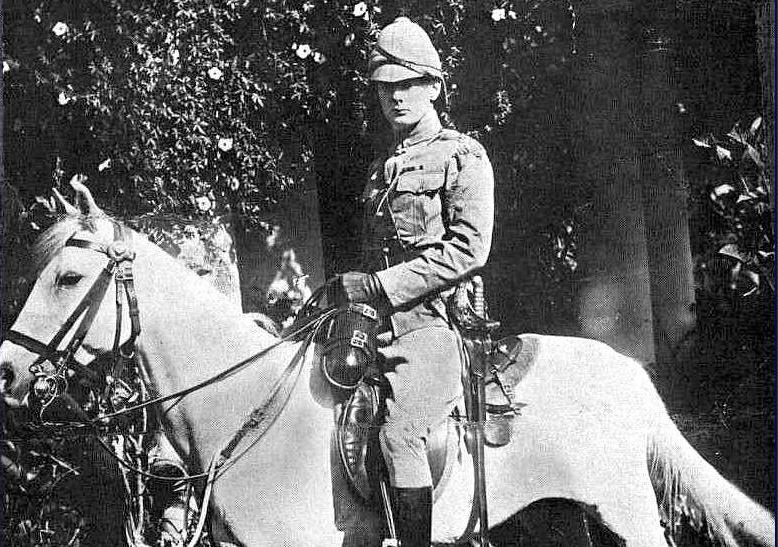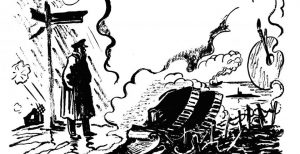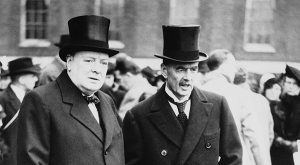
Divine Intervention: Taking Care of Winston
The following quotations, subtitled “Divine intervention,” are excerpted my quotations book, Churchill by Himself. They will appear in the “Religion” chapter in the upcoming fifth expanded edition, to be published in 2024 by Hillsdale College Press and Rosetta Books. Altogether, the new work will add 1200 entries and exceed 500,000 words. That is 2.5% of Churchill’s total output, which is enough between two covers. My thanks to Andrew Roberts, Dave Turrell, and Hillsdale College President Larry Arnn for kind assistance with research.
Divine intervention
While Churchill was not an orthodox churchman, he spoke of religion often. The word “religion” stems from a Latin word meaning “respect or duty to what is sacred.” Churchill certainly adhered to that.
When he referred in speeches to “Christian civilization,” he did not mean to exclude Jews or Buddhists or Muslims. He meant those words stood for principles he considered universal. He cited the Ten Commandments, the Sermon on the Mount, the Golden Rule, charity, forgiveness and courage. Dr. Larry Arnn writes:
He thought Christianity both good and vital. Several times he indicated some distance between himself and its orthodox doctrines. Consistently he had great respect for the Divine. Placed in a wider context, none of this is remarkable. Classic philosophy, hundreds of years before Christianity and not in contact with Judaism, is almost all theistic on rational grounds. The argument goes this way: To say one thing is better than another is also to say that it is more perfect. What would be the simply perfect? God.
In his youth, Churchill’s religion included the belief that God was preserving him for some higher purpose. The historian Andrew Roberts notes that Churchill had many narrow escapes: several childhood illnesses, near-death from ruptured kidney, near-drowning in Lake Geneva. He survived close brushes fighting in five wars on five continents from 1897 to 1916. He was nearly killed by a car in New York, survived assassination plots and enemy aircraft. Lord Roberts adds: “Not without reason he believed that an important obligation of the Almighty was to watch over the life of Winston Churchill.”
1897: “Who’s that damn fool on the grey?”
—22 December, Bangalore, India, WSC to his mother….
I am very gratified to hear that my follies have not been altogether unnoticed. To ride a grey pony along a skirmish line is not a common experience. But I had to play for high stakes and have been lucky to win. I did this three times, on the 18th, 23rd and 30th, but no one officially above me noticed it until the third time when poor Jeffreys, a nice man but a bad general, happened to see the white pony. Hence my good fortune.
Bullets to a philosopher my dear Mamma are not worth considering. Besides I am so conceited I do not believe the Gods would create so potent a being as myself for so prosaic an ending. Any way it does not matter.
His faith in Divine providence was already evident. WSC was describing his selection of a light grey horse during a skirmish, when Jeffreys shouted, “Who’s that damn fool on the grey?” Patrick Douglas Jeffreys (1848-1922), commander, Second Brigade, Malakand Field Force, 1897.
1915: “A hand had been stretched out to move me…”

—24 November, Ploegsteert, Belgium…
With the Army in Flanders, Churchill was summoned from the trenches for a social visit with the Corps Commander. Grumbling, he trudged the rainy, muddy fields to a rendezvous, where the general’s car failed to appear. It had become lost, and the general had returned to his headquarters. Now indignant, Churchill began his “trudge back”….
Tired out and very thirsty, I put my head into the nearest Company Mess for a drink. “Hello,” they said, “you’re in luck today”…. I did not understand their allusions at all….
I had got within twenty yards of my shelter when a Sergeant, saluting, said: “We have shifted your kit to Mr. —‘s dug-out, Sir.”
“Why?” I asked.
“Yours has been blown up, Sir.”
“Any harm done?” “Your kit’s all right, Sir, but — was killed. Better not go in there, Sir, it’s in an awful mess”….
“When did it happen?” I asked.
“About five minutes after you left, Sir. A whizzbang came in through the roof and blew his head off.”
*
WSC. writing the next day to Clementine Churchill …
Suddenly I felt my irritation against General —* pass completely from my mind. All sense of grievance departed in a flash. As I walked to my new abode, I reflected how thoughtful it had been of him to wish to see me again, and to show courtesy to a subordinate, when he had so much responsibility on his shoulders. And then upon these quaint reflections there came the strong sensation that a hand had been stretched out to move me in the nick of time from a fatal spot. But whether it was the General’s hand or not, I cannot tell.
Now see from this how vain it is to worry about things. It is all chance or destiny and our wayward footsteps are best planted without too much calculation. One must yield oneself simply & naturally to the mood of the game: and trust in God wh[ich] is another way of saying the same thing.
Clementine replied: “It is horrible to sit here in warmth & luxury while danger & suffering are so close to you— That dreadful walk across the fields there & back among falling shells was on Nov 24th & now it is 10 days later & Heaven knows what narrow escapes you may have had since.”
*The Corps Commander whose casual invitation saved Churchill’s life was Brigadier Sir Richard Haking GBE, KCB, KCMG (1862-1945). In October 1919 Churchill and Field Marshal Sir Henry Wilson named Haking to head the British Military Mission to Russia. For an account by H. Ashley Redburn, who met Haking in later life, click here.
1935: “Over me beat the invisible wings”
—November 1935 (written 1948)…

It had been widely bruited that I should join the [1935] Government as First Lord of the Admiralty. But after the figures of his victory had been proclaimed, Mr. Baldwin lost no time in announcing through the Central Office that there was no intention to include me in the Government. In this way he paid some of his debt to the pacifist deputation which he had received in the last days of the election. There was much mocking in the Press about my exclusion. But now one can see how lucky I was. Over me beat the invisible wings.
—Here is one case where Divine Providence preserved him not from death but for politics. In the 14 November 1935 general election, Stanley Baldwin’s Conservatives triumphed to dominate the National Government. Had Churchill been part of that government, he would have been bound by “collective responsibility,” unable to continue the warnings that proved so prophetic by 1939, and propelled him into office in 1940.







One thought on “Divine Intervention: Taking Care of Winston”
Churchill’s life suggests that whether he believed in God, God believed in him. Excellent essay.
Comments are closed.